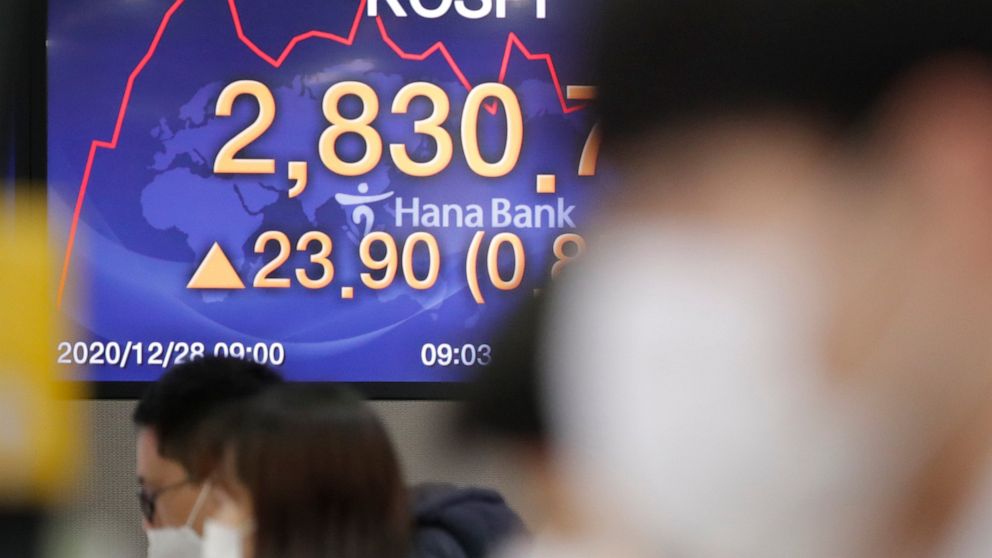Asian stocks advance after Trump signs $900B aid package
Asian stock markets have risen after President Donald Trump signed a $900 billion economic aid package, helping to reduce uncertainty as governments re-impose travel and business curbs in response to a new coronavirus variant
BEIJING — Asian stock markets rose Monday after President Donald Trump signed a $900 billion economic aid package, helping to reduce uncertainty as governments re-impose travel and business curbs in response to a new coronavirus variant.
Shanghai, Tokyo and Hong Kong advanced as traders returned to work following a three-day Christmas weekend.
Trump signed the measure, which also includes money for other government functions through September, despite expressing frustration that $600 payments to the public weren’t bigger. His signature following last-minute objections helped to clear away uncertainty as reinstated travel and business curbs threaten to weigh on global economic activity.
“The stimulus balloon will allow the markets to navigate better the number of new air pockets showing up on the radar due to the virus’s latest variant,” said Stephen Innes of Axi in a report.
The Shanghai Composite Index gained 0.3% to 3,406.69 and the Nikkei 225 in Tokyo added 0.5% to 26,798.62. The Hang Seng in Hong Kong was up less than 0.1% at 26,391.20.
In Hong Kong, Chinese e-commerce giant Alibaba Group announced it was expanding a share buyback from $6 billion to $10 billion. Alibaba shares declined 7% following last week’s announcement of an anti-monopoly investigation and the suspension of the stock market debut of Ant Group, an online finance platform in which Alibaba owns a 33% stake.
In Seoul, the Kospi rose 0.4% to 2,817.79 while India’s Sensex opened up 0.06% at 47,230.55.
Singapore and Jakarta advanced. Australian markets were closed.
On Wall Street, the benchmark S&P 500 index gained 0.4% to 3703.06 on Thursday in its last pre-Christmas trading day. The Dow Jones Industrial Average rose 0.2% to 30,199.87. The Nasdaq composite rose 0.3%, to 12,804.73.
Investors have been encouraged by the development of coronavirus vaccines but that optimism has been dented by the discovery of the new, more contagious variant.
On Monday, South Korea reported its first cases of the new variant in three people who arrived from Britain. Over the weekend, Japan also reported cases and re-imposed limits on entry into the country by non-resident foreigners. It also said both Japanese and foreign residents would be required to show coronavirus test results on arrival and to observe quarantines.
In energy markets, benchmark U.S. crude lost 7 cents to $48.16 per barrel in electronic trading on the New York Mercantile Exchange. On Thursday, the contract rose 11 cents to close at $48.23. Brent crude, the basis for pricing international oils, shed 12 cents to $51.22 per barrel in London. It rose 9 cents the previous session to $51.29 a barrel.
The dollar declined to 103.54 yen from Friday’s 103.68 yen. The euro rose to $1.2216 from $1.2180.
![]()


